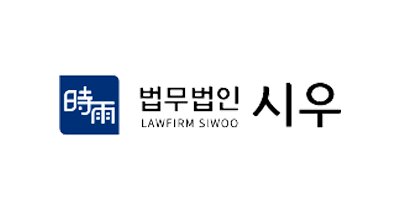Best Pension Lawyers in South Korea
Share your needs with us, get contacted by law firms.
Free. Takes 2 min.
Or refine your search by selecting a city:
List of the best lawyers in South Korea
About Pension Law in South Korea
In South Korea, the pension system is primarily composed of the National Pension Service (NPS), a public pension scheme that provides income for retirees, disabled individuals, and survivors. The NPS is mandatory for most residents, including salaried workers and self-employed individuals. The system is designed to ensure financial security for citizens as they age, by pooling contributions over a working life span and redistributing them during retirement. South Korea also allows private pension schemes through corporate and personal pension plans to supplement the public system.
Why You May Need a Lawyer
There are several situations where legal assistance regarding pensions may be necessary:
- Disputes over pension entitlements or payouts.
- Legal guidance when structuring and managing corporate pension plans.
- Assisting expatriates navigating the South Korean pension system.
- Resolving issues related to pension contributions and withdrawals.
- Advice on tax implications concerning pension savings.
- Understanding and complying with changes in pension laws and regulations.
Local Laws Overview
South Korean pension laws are governed by various regulations, including the National Pension Act and the Employee Retirement Benefit Security Act. Key aspects include:
- Mandatory Enrollment: Most residents aged 18 to 59 are required to enroll in the NPS.
- Contribution Rates: Both employers and employees contribute to the NPS, with the contribution rate adjusted periodically.
- Types of Benefits: The NPS provides old-age, disability, and survivors' pensions. Eligibility and the amount depend on the individual’s contribution history and age.
- Pension Portability: Certain agreements exist for foreigners and Koreans working abroad to ensure pension rights are protected.
- Payout Structure: Pension payments can be received as lump sums or annuities, with specific provisions applying to different categories of pensions.
Frequently Asked Questions
What is the minimum contribution period for pension eligibility?
The minimum contribution period is ten years to be eligible for old-age pension benefits from the NPS.
Can foreigners participate in the South Korean National Pension Scheme?
Yes, foreigners residing and working in South Korea are typically required to join the NPS unless they are exempt due to a Social Security Agreement between South Korea and their home country.
How are pension contributions calculated?
Contributions are usually a fixed percentage of an employee’s monthly income, shared equally between the employer and the employee.
What happens if I stop contributing to the NPS?
If contributions stop, benefits may be affected based on the contribution history. It may also lead to reduced benefits upon retirement unless contributions are resumed.
Are there penalties for early withdrawal of pensions?
Yes, withdrawing pension funds before meeting the legal retirement age can result in penalties or reduced future benefits.
Can I transfer my corporate pension to an individual plan?
Under certain conditions and depending on the plan rules, transfers may be possible; legal advice can clarify options.
What documents are required to apply for pension benefits?
Application forms, identification, contribution records, and potentially other documents like medical certificates for disability pensions are required.
How are pension benefits taxed?
Benefits are generally taxed as ordinary income, but specific exemptions and deductions may apply.
How do I dispute a pension claim decision?
You can file an appeal through the National Pension Service, and it is often beneficial to seek legal advice for disputes.
Can I still receive pension benefits if I live abroad?
Yes, pension benefits can often be received overseas, but specific requirements must be met, and certain limitations may apply.
Additional Resources
- National Pension Service (NPS): Provides a comprehensive guide and resources related to South Korea’s public pension system.
- Ministry of Health and Welfare: Offers policy and regulatory guidance for the pension schemes.
- Korea Workers' Compensation & Welfare Service: Offers assistance with retirement and welfare benefits.
- Local Law Firms and Legal Consultancies: Often provide specialized services and advice for navigating pension-related legal matters.
Next Steps
If you require legal assistance with pension-related matters in South Korea, consider the following steps:
- Identify the specific pension issues or concerns you have.
- Gather relevant documentation related to your pension contributions and claims.
- Consult a lawyer who specializes in South Korean pension law to understand your rights and options.
- Utilize additional resources and government bodies to gain broader insights into potential issues and resolutions.
- Consider attending pension law seminars or workshops to stay informed about any legal changes that may affect your rights and obligations.
Lawzana helps you find the best lawyers and law firms in South Korea through a curated and pre-screened list of qualified legal professionals. Our platform offers rankings and detailed profiles of attorneys and law firms, allowing you to compare based on practice areas, including Pension, experience, and client feedback.
Each profile includes a description of the firm's areas of practice, client reviews, team members and partners, year of establishment, spoken languages, office locations, contact information, social media presence, and any published articles or resources. Most firms on our platform speak English and are experienced in both local and international legal matters.
Get a quote from top-rated law firms in South Korea — quickly, securely, and without unnecessary hassle.
Disclaimer:
The information provided on this page is for general informational purposes only and does not constitute legal advice. While we strive to ensure the accuracy and relevance of the content, legal information may change over time, and interpretations of the law can vary. You should always consult with a qualified legal professional for advice specific to your situation.
We disclaim all liability for actions taken or not taken based on the content of this page. If you believe any information is incorrect or outdated, please contact us, and we will review and update it where appropriate.
Browse pension law firms by city in South Korea
Refine your search by selecting a city.
















